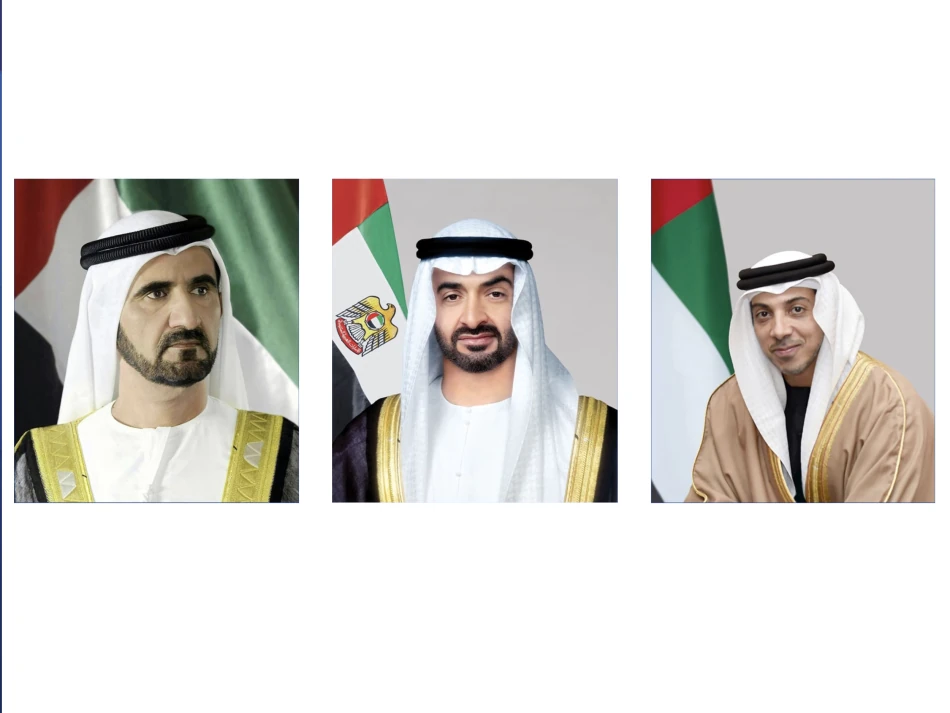
UAE President, VP Congratulate Hungarian Counterpart on National Day
UAE-Hungary Relations Strengthen as Leaders Exchange National Day Congratulations
The UAE's top leadership has extended formal congratulations to Hungary on its national day, with President Sheikh Mohamed bin Zayed Al Nahyan leading diplomatic outreach that signals the Emirates' continued focus on strengthening ties with European partners amid shifting global economic dynamics.
High-Level Diplomatic Exchange Reflects Strategic Priorities
The congratulatory messages from UAE President Sheikh Mohamed bin Zayed Al Nahyan to Hungarian President Tamás Sulyok demonstrate the Emirates' systematic approach to maintaining diplomatic relationships across Europe. Vice President and Prime Minister Sheikh Mohammed bin Rashid Al Maktoum, along with Deputy Prime Minister Sheikh Mansour bin Zayed Al Nahyan, also sent similar messages to both President Sulyok and Prime Minister Viktor Orbán.
This coordinated diplomatic gesture reflects the UAE's broader strategy of cultivating relationships with mid-tier European powers that can serve as bridges to larger EU markets and policy discussions.
Economic Motivations Behind the Diplomatic Courtesy
Hungary as a Gateway to European Markets
Hungary represents an attractive partner for the UAE's diversification strategy beyond traditional oil revenues. The Central European nation offers competitive manufacturing costs, EU market access, and a government that has shown openness to non-Western investment partnerships. For UAE sovereign wealth funds and state-linked companies, Hungary provides entry points into European supply chains without the regulatory complexity of larger EU economies.
Parallels with UAE's Regional Strategy
The UAE's approach to Hungary mirrors its successful relationship-building with other mid-sized economies. Similar to its partnerships with Singapore in Asia or its growing ties with African nations, the Emirates leverages diplomatic goodwill to create business opportunities for its diversified economy. This strategy has proven particularly effective in sectors like renewable energy, logistics, and financial services.
Broader Implications for Middle East-Europe Relations
The timing of these diplomatic exchanges comes as European nations seek to reduce energy dependence on Russia while maintaining economic growth. The UAE, with its stable energy supplies and significant investment capital, positions itself as a reliable partner for European nations navigating geopolitical uncertainties.
For investors and businesses, these diplomatic ties often precede concrete economic agreements. The UAE's track record suggests that formal congratulations and state visits typically lead to memorandums of understanding in trade, investment, and technology transfer within 12-18 months.
Strategic Positioning in a Multipolar World
Unlike larger Gulf states that sometimes face diplomatic complications due to energy politics or regional conflicts, the UAE's pragmatic foreign policy allows it to maintain relationships across different political blocs. This approach has made it an increasingly important hub for international business and diplomacy, with Dubai and Abu Dhabi serving as neutral meeting grounds for global leaders and companies.
The Hungary congratulations, while ceremonial in nature, represent the UAE's continued commitment to this balanced diplomatic approach that has proven economically beneficial and strategically valuable in an increasingly fragmented global landscape.
Most Viewed News

 Sara Khaled
Sara Khaled






